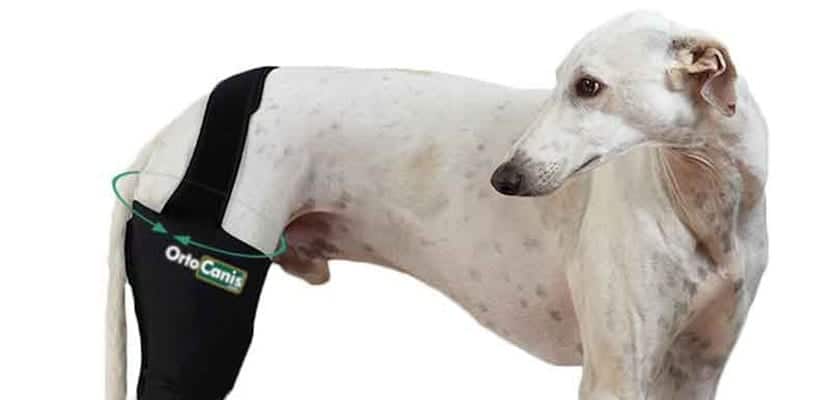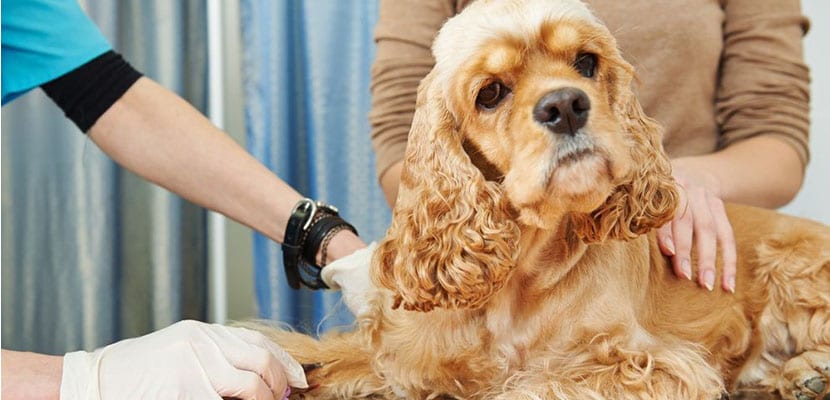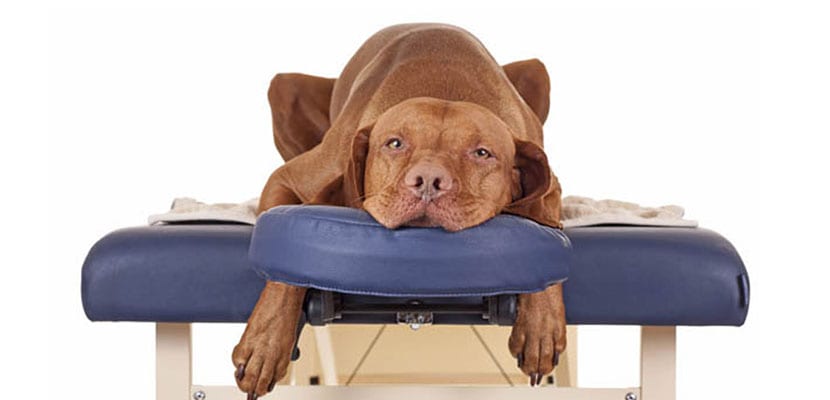
La hip dislocation in dogs It is a traumatic problem that requires early intervention to avoid older illnesses and improve the dog's quality of life. Several problems can occur in the dog's hip that are quite common, and dislocation is one of them.
It is necessary to know the reasons why a hip dislocation may appear, to know how to recognize the symptoms and act accordingly. Without a doubt, it is essential that, as their owners, we are quick to realize the dog's diseases so that they apply a treatment with which they can lead a healthier and more balanced life.
What is hip dislocation

The dog's hip is very important for its ambulation. Dislocation is a strong and significant injury That occurs when the hip joint is dislocated. This happens when the head of the femur deviates out of the concave part of the joint, called the acetabulum. The dog's ability to walk is reduced and a deviation of the back legs may be seen inward or outward, depending on where the dislocation occurs.
Hip dysplasia
The dogs that have hip dysplasia they are much more likely to suffer a hip dislocation. Dysplasia causes inflammation, pain, and weakness in the joints, which can lead to dislocation. Dogs such as the German Shepherd and those of medium and large breeds are much more likely to have this type of problem. It is something that cannot be avoided but it can be treated to improve the joints and prevent dislocation. The weaker the tissues are, the easier it will be for dislocation to occur.
Symptoms of dislocation
A dislocation is usually caused by severe trauma in the vast majority of cases. Dogs with dysplasia are usually already controlled at the veterinarian so that the problem does not get worse. In the case of dogs that have suffered a great trauma due to a blow, the possibility of further problems must be taken into account. As this disease appears due to blows and trauma, it is normal for us to take the dog to the vet for a general check-up. In principle, if the dog is dislocated will have pain and will walk badly, with the legs in an outward or inward position. There is no need to draw conclusions, but if the dog has suffered a blow it is very important to go to the vet. It is possible that the dog has suffered more problems, since this displacement of the hip can lead to problems in some organs such as the bladder.
Go to the vet

A few actions will be carried out at the vet to determine the dog's state of health. Between them a blood test will be done, with which you can know if there is any infection or blood loss due to the blow. On the other hand, if the dog is not doing well, an X-ray of the hip will be essential to determine how the joint has been injured and the degree of injury. On many occasions, veterinarians may not have this type of equipment and it is necessary to consult a specialist in dog trauma.
Another of the things that can be done are additional x-rays to find out if there is any other trauma to the dog. You may have a leg or rib problem. The vet can determine with a general examination if the dog has any other injuries or is feeling better. As we say, since it is a strong trauma, the most common is that a thorough examination is carried out to avoid greater evils, since the dog may have more injuries, infections or hemorrhages that worsen its condition, beyond the dislocation.
Treatment of dislocation
A dislocation can be treated surgically or nonsurgically. Non-surgical treatment is performed a few days after the trauma. If more time has passed, a surgical operation must be performed in which an implant is added to give more support to the joint. There are also veterinarians who determine to perform a total hip change in the dog. These treatments should always be administered taking into account the level of injury to the dog's hip and also its age and health, since not all dogs can undergo an operation like this and physiotherapy sessions for a long time.
In many cases it is better immobilization to improve the state of the hip. At the same time, the vet will administer pain relievers and anti-inflammatories in order to improve the problem. In all cases, we must also think about giving the dog some stomach protector, something that is done regularly when administering a large number of medications.
Dog care

After an operation or after the improvement of the joint, the dog will continue to need our care. Dogs, if they feel better with the medication, are not aware that they are still bad and that is why they can get hurt. It is essential that as owners we take care of the dog and let's avoid making sudden movements, jumping or something that could hurt your hip. In this sense, we must give him walks with a short leash and little by little, preventing him from playing with other dogs and explaining to other owners our dog's problem so that they do not let their dogs play with him, as they can harm him.
It is often strongly recommended that the dog go to physiotherapy to improve hip mobility. After the operation, mobility may be reduced and physiotherapy will help reduce pain and improve the dog's standard of living. In physical therapy classes they can also give owners guidelines so that they know how to do the exercises and take better care of their dog so that it recovers more quickly.
Hello, my dog suffered a hip dislocation from a blow. Surgery was performed, after three months he had a subsequent dislocation in the other leg. I would like to know if it is advisable to operate again. With the previous surgery he had many complications, we do not know what decision to make
Hello, we recommend that you consult with your veterinarian, since he is the one who can best diagnose the dog and assess whether or not to carry out a new intervention.
regards